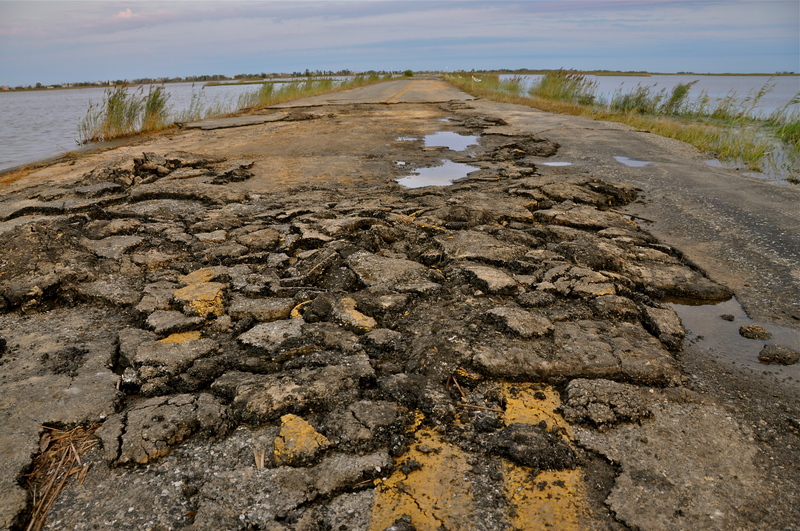Grant to fund Prime Hook Road upgrades
State transportation officials plan to use a $640,000 federal grant to upgrade culverts under Prime Hook Road. Officials say the project is aimed at alleviating flooding in Prime Hook National Wildlife Refuge and nearby Primehook Beach, a Delaware Bay community bordering the refuge.
But some residents say the planned culverts will not fix the root of the flooding: a series of breaches in the dunes near Fowler Beach that allows the free flow of water from Delaware Bay into the refuge. Over the past four years, a series of storms has driven saltwater into freshwater marshes damaging the marshes.
“No matter how many culverts you put under the road, this reality will not change,” said resident John Chirtea. “We have to realize the fact that when we have major flooding, there is 4,000 feet of open saltwater south of Fowlers Beach Road coming into Unit 2 from the Delaware Bay.”
Prime Hook Refuge contains four marsh impoundments called units.
The grant was awarded to Delaware Department of Transportation and will cover the costs of materials, said DelDOT spokesman Geoff Sundstrom.
“Our goal is to preserve normal access to and from Prime Hook for homeowners in the area during typical weather and to minimize, as much as possible, the need to expend money for ongoing repairs to the road due to repeated flooding,” Sundstrom said. “What we are proposing will not guarantee access for homeowners during major storms, as the culverts will not raise the existing roadbed.”
Residents have been trying to drive home one message to legislators and refuge officials during a series of public hearings on a proposed comprehensive conservation plan for the refuge: they want the breaches repaired.
“I applaud our legislators for getting this done, but it is the wrong focus to solve our access problem at Primehook Beach,” he said. “Close the breaches, and we have no problem with the road or access to our properties.”
Sundstrom said the full cost of the project will not known until design and permitting work is completed. DelDOT will consult with with several other agencies including U.S. Fish and Wildlife, Delaware Department of Natural Resources and Environmental Control and U.S. Army Corps of Engineers.
Transportation officials acknowledge the project is not a total solution to the problem.
Sundstrom said the plan is to replace and expand the capacity of the existing crossroad pipes by installing box culverts in their place to reduce some of the water that backs up and washes over the road during major storms or tidal events.
Chirtea said putting in additional culverts would only allow more water to pass from Unit 2 into Unit 3, and could end up causing more flooding to other communities, including Broadkill Beach.
Sundstrom said the construction schedule depends on design work and permitting. “Obviously, we would prefer to begin the work as soon as possible since the difficulties with this road are ongoing, but there are many sensitive environmental factors to be considered,” Sundstrom said.
DelDOT has repeatedly patched and paved the road following storm damage. The most extensive repairs made to date occurred after last year's Hurricane Irene.
In a press release from Gov. Jack Markell's office, officials pledged to continue to work together in addressing flood-prone areas of Prime Hook.
“The state and residents of Primehook Beach continue to work with federal fish and wildlife officials on issues affecting homes,” Markell said. “One commitment we made to the community was working with the federal delegation to secure funds to improve the only public access point to Prime Hook Beach. While there's much work to be done, this team effort hopefully will make things better and give some relief to Primehook residents.”
The grant, one of three awarded to Delaware for bayshore projects, comes from the U.S. Federal Highway Administration as part of its Public Lands Highways Discretionary Program and National Scenic Byways Program.
The Route 9 Coastal Scenic Byway Overlooks Project received an $840,500 grant to create overlook areas and trails in Augustine, Woodland Beach, Little Creek and the Ted Harvey Wildlife Area. Another $240,000 will be used to fund planning and design for a bike and pedestrian trail along the C&D Canal in Delaware City.





















































